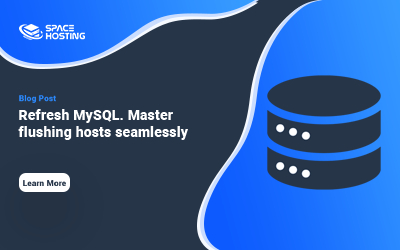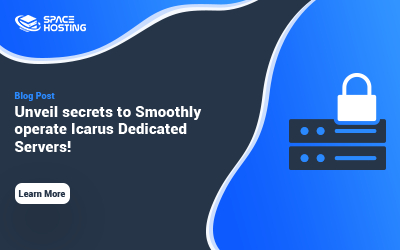Starting IPFS hosting involves the use of the Inter Planetary File System (IPFS) protocol to host and transfer data on a decentralized network of computers rather than a centralized server. IPFS is a distributed system for storing and retrieving data in which documents are identified by content rather than location. This implies that files can be hosted by Space Hosting on various nodes throughout the network, and anyone can access them via any node.
Table of Contents
- What is IPFS Hosting?
- How to conduct IPFS Hosting?
- What are the Pros and Cons of IPFS Hosting?
- How Costly is IPFS Hosting?
- Conclusion
What is IPFS Hosting ?
Leveraging IPFS (InterPlanetary File System) for hosting presents numerous advantages over conventional hosting methods, incorporating enhanced speed, reliability, and confidentiality. The standout feature of IPFS hosting is its decentralized structure. This unique feature allows users to access files rapidly from the node in closest proximity, enhancing speed due to the distribution of files across a network of nodes. Alongside, hosting on IPFS significantly bolsters security since files, stored on a decentralized network, are less exposed to threats such as hacking attempts, data breaches, and system downtime.
To know ‘how to host on IPFS’, it begins with setting up an IPFS node on your device. Following this, your files need to be uploaded onto the IPFS network. To enable file access, you’d share a hash of the files with others. An alternative to this method is employing the services of a third-party provider specialized in IPFS hosting. This option could streamline the process for users less familiar with the IPFS hosting process or those looking for a more hands-off approach.

How to conduct IPFS Hosting?
IPFS hosting is emerging but not suitable for all situations. Technical expertise is required for hosting on IPFS.
Step no. 1 – Install an IPFS node to Host it
To use IPFS, install it on your machine by following the instructions on their website.
Step no. 2 – Add your files to IPFS Host
Once installed, use the “ipfs add” command to add files to the network. Each file gets a unique hash and joins IPFS.
Step no. 3 – Share the hash
Once your files are on IPFS, share the unique hash with others to access them. The hash is a special identifier that allows downloading from any IPFS node.
Step no. 4 Use a third-party IPFS hosting service (optional)
You can utilize a third party for Starting IPFS hosting such as Space Hosting if you do not wish to host your very own IPFS node. These services allow you to submit your files to their IPFS nodes and receive a unique hash with which you may distribute your files.
When choosing between a Europe VPS Hosting (Virtual Private Server) and a dedicated server for IPFS hosting, a VPS is often the better option for most users due to its flexibility, cost-effectiveness, and ease of scaling. A VPS provides sufficient resources for running an IPFS node while offering the ability to scale resources up or down depending on the demand. The decentralized and dynamic nature of IPFS emphasizes the significance of this aspect. Moreover, a VPS usually presents a more budget-friendly option compared to a dedicated server, catering to users with diverse financial constraints. While a dedicated server may deliver superior performance, it typically suits users with specific demands or extensive data management needs, such as the utilization of Streaming Dedicated Servers for high-traffic activities.
€ 2.99
First Month
Step no. 5 – Access your files on IPFS Host
Once uploaded to IPFS, use the file’s hash to access it on any IPFS node. You can access your files through the IPFS command line tool or a web-based IPFS gateway.
What are the Pros and Cons of IPFS Hosting?
Before selecting to utilize IPFS hosting, you should analyze its pros and cons. Here are some of the pros and cons of IPFS hosting:
Host on IPFS: Pros
- Decentralized: IPFS hosting is a decentralized technique to store and share data, which implies that files are saved on several nodes rather than a single server. Because there is no single point of failure, it is more resistant to errors and safer.
- Faster file access: IPFS implements a content-addressable system, enabling clients to get to files more quickly since they may download from a node closest to their location instead of connecting to a centralized server situated away from them.
- Improved data integrity: IPFS employs encrypted hashes to identify files, allowing the authenticity of the files to be verified. This implies that consumers may be certain that the files they download are identical to the ones uploaded, without relying on a trusted third party.
- Reduced Costs: Because IPFS hosting employs a distributed network of nodes rather than a centralized server, it can be less expensive than typical hosting techniques.
Host on IPFS: Cons
- Limited scalability: Since IPFS is a new technology, it is unclear how well it will work at scale. While IPFS’s decentralized structure is helpful, it may also make scaling challenging.
- Incompatibility: IPFS relies on a different protocol than HTTP, which is utilized by most websites. This can make integrating IPFS with current online apps and services problematic.
- Technical expertise is required: Starting up and operating an IPFS node must require considerable technical expertise, which may be difficult for users with no technical expertise, But Space Hosting will deliver excellent services provided by technical experts to satisfy the clients.
- File availability: IPFS files are only available while there are still nodes hosting them. If all the nodes hosting a file go offline, the file will be inaccessible until a new node takes its place.
Overall, IPFS hosting might be a useful option for certain use cases, particularly those seeking a safer and more durable approach to file storage and distribution. However, before selecting to adopt IPFS hosting, it is critical to evaluate the constraints and trade-offs.
What is the Cost of Hosting on IPFS?
Understanding how to host on IPFS requires some level of technical expertise. The quantity of data you need to store, the volume of requests coming to your website, and the number of network resources needed to meet your hosting requirements are all variables that might affect how much IPFS hosting will cost you. The primary factors influencing the expense of IPFS hosting are bandwidth and storage costs. Running your own IPFS node requires a degree of technical skill, along with potential additional costs linked to the operation, maintenance, and updating of the node with the latest software and security enhancements. There are also third-party IPFS hosting services as an alternative, where the prices fluctuate according to the provider, the storage and bandwidth demands, and the necessary support quality. On the whole, IPFS hosting can be more cost-effective compared to conventional hosting options, especially when there are large storage or bandwidth needs. However, it is critical to thoroughly assess the fees associated with IPFS hosting and select the solution that best fits your budget and hosting requirements.
Conclusion
In conclusion, IPFS hosting is a decentralized hosting approach that has various advantages over traditional hosting systems, including enhanced security, improved speed, and lower prices. IPFS hosting prevents the danger of single-point-of-failure by keeping files on a distributed network of nodes instead of a centralized server resulting in a stronger hosting solution. Furthermore, IPFS hosting improves efficiency by lowering latency and increasing download rates, particularly for big files. However, IPFS hosting necessitates considerable technical know-how for setting up and maintaining, and it may not be appropriate for many use cases. It is critical to thoroughly weigh the advantages and disadvantages of IPFS hosting and select the hosting solution that best meets your individual requirements and budget.
All in one Digital Package by Space Hosting

In this project, we will help you in transforming the idea you have in your mind into reality. we will provide you with IT resources, designers, and lawyers and when the project development will be completed then will help you with marketing also.



0 reacties